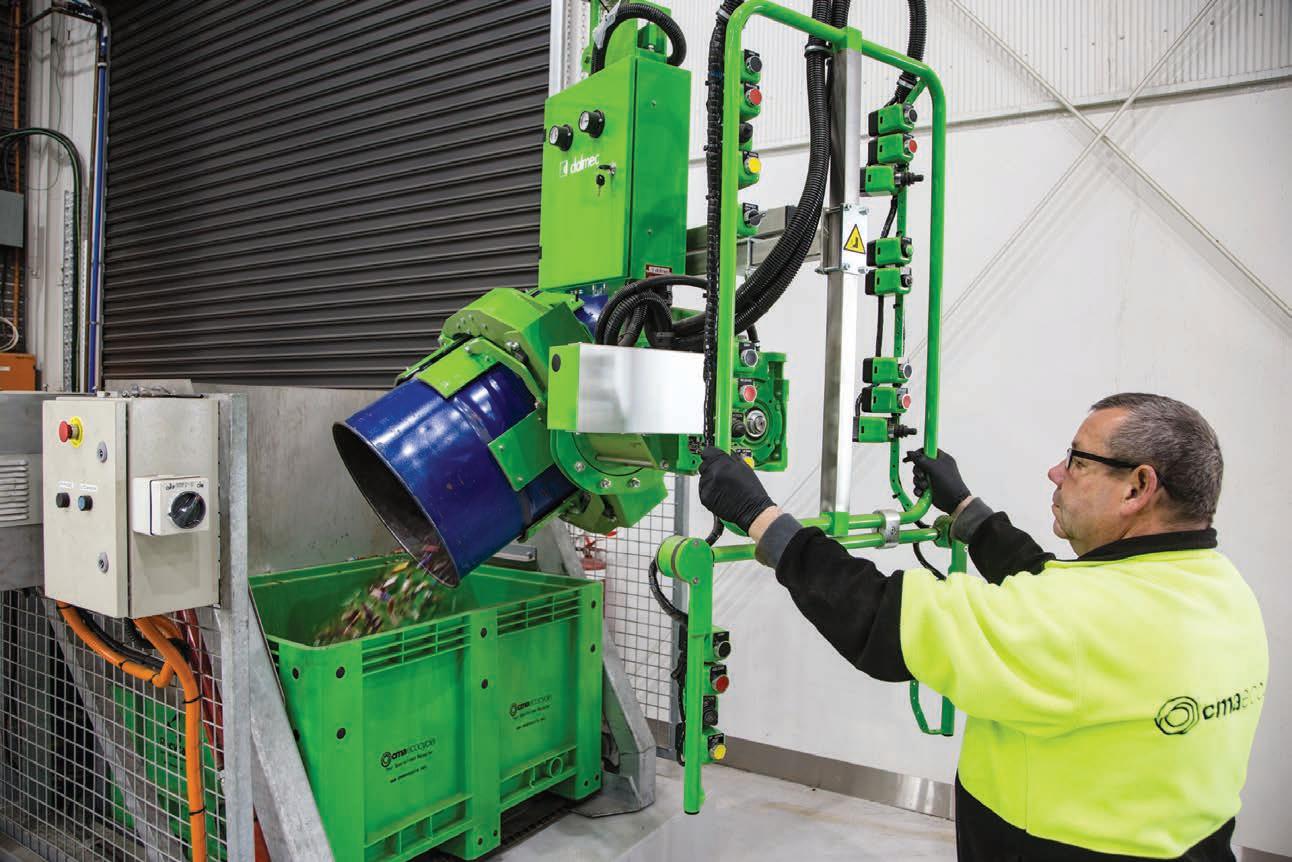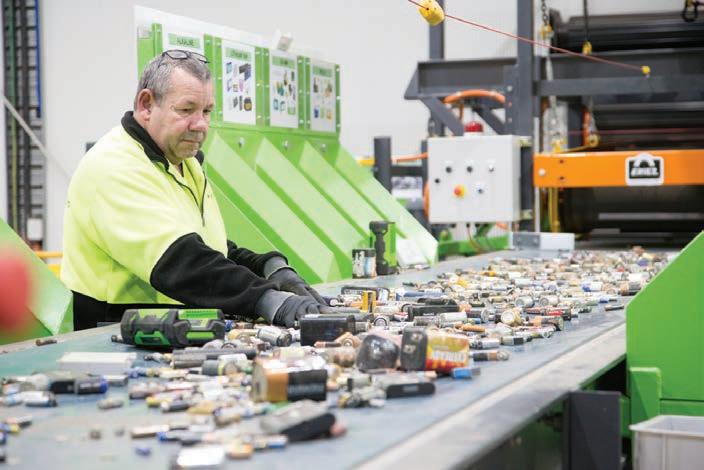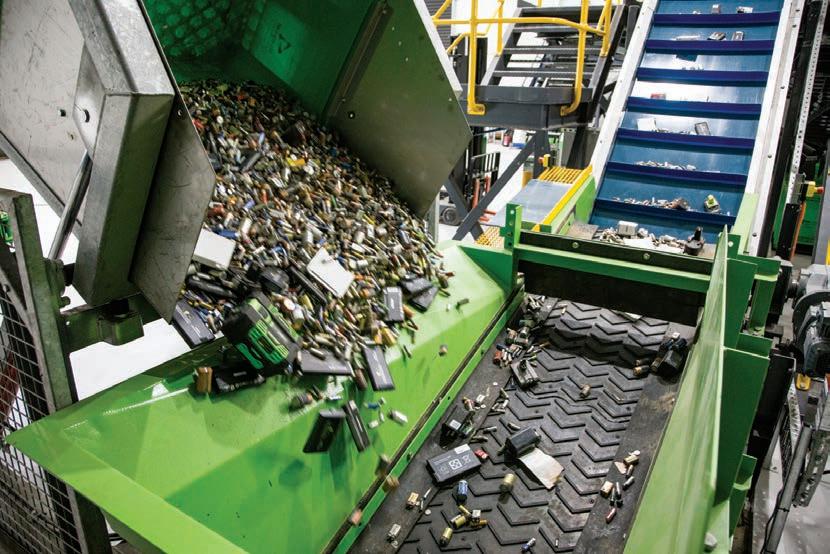
3 minute read
A GOOD SORT
The automated battery sorting system separates battery chemistries.
ECOBATT HAS POOLED BEST PRACTICES FROM AROUND THE WORLD TO BUILD AN AUTOMATED BATTERY SORTING SYSTEM.
The EcoBatt team visited battery recycling sites around the globe, learning from their success, failures and experiences to help shape their Melbourne facility.
Doug Rowe, Director of EcoBatt and Recycal says the lessons learned by colleagues overseas proved invaluable when sitting down with the engineering team at COVA Design to come up with a patented automated battery sorting system that separates battery chemistries.
“Taking the best bits from each of their operations and being able to start with a clean sheet enabled us to build a plant that incorporates all their observations and suggestions,” Doug says.
“We felt privileged that they were so willing to share their experiences and they continue to follow the progress and development of our battery sorting plant.”
Doug says many and varied batteries are collected from EcoBatt’s recycling drop-off points. The battery sorting plant can sort them down to the smallest cell battery to the larger alkaline or lead acid batteries. It can also remove batteries which may contain sand or vermiculite (a group of hydrated laminar


minerals such as aluminium-iron magnesium silicates).
“It is not just a couple of sorting conveyors in a row with people trying to pick chemistries by eye,” Doug says. “It’s a sophisticated automated system with Artificial Intelligence reading the batteries and placing them in their correct category by chemistry. We can sort about 10 tonne per day during one shift.
“Accurate sorting of these batteries is so important as the chemistries differ greatly from battery to battery. Each reacts differently and contains different metals.
“We continue to see so many different batteries coming through from industry and we continue to learn more about them every day. Sorting them and keeping the chemistries together allows for much safer and controlled recycling and processing.”
Doug says safety is a key concern when sorting batteries. EcoBatt’s sorting facility has “all the safety systems in play” including thermal cameras inside the sorting shed, sprinkler systems, sand boxes, and specialised metal fire extinguishers in case of any emergency. Separate outdoor storage containers also have sprinkler control, suppression systems and heat detection. Doug says anything of concern can safely be put in these containers which are further protected by a Fire Rover fire detection and suppression system.
“Batteries need to be respected and handled correctly and we go out of our way to ensure we do all we can to make that happen,” he says.
There is some hand sorting at the beginning of the process to remove batteries in plastic bags and other mixed items. EcoBatt also accepts mobile phones in its battery collection bins located around Australia. The phones are separated along the processing line and stored in bins for further recycling. The phone batteries are removed to recover specialised battery materials and metals, while the phones themselves are processed separately. Mobile phone charges and accessories and wearables including smart watches can also be recycled in the collection bins.
Doug says collecting a variety of products ensures clients have easy access to recycling. “Batteries now play such an important part in our lives with many finding their way embedded into all kinds of toys, tools, mobile equipment and indeed all around the household,” he says.
“Even in the workplace batteries are found and needed in so many devices. Without a way to recycle them people would store them in drawers, leave them around the house or workplace and in many cases, they would be placed in the rubbish bins.
“Now there is an answer to recycle the batteries and more importantly, collection points all around the country for them.”
Mobile phones, battery chargers and accessories are sorted in the process.
The sorting plant can sort batteries down to the smallest cell battery. For more information and nearest drop-off points visit: www.ecobatt.net










